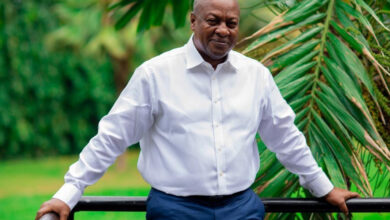
The Mahama administration is heralding a robust turnaround in Ghana’s economy after 10 months in office, with Deputy Finance Minister Thomas Ampem Nyarko announcing key fiscal milestones that signal stabilization and renewed investor confidence. Speaking at a press conference in Accra on Monday, October 20, ahead of the November 2026 budget presentation, Ampem Nyarko credited “prudent fiscal management” for a primary balance surplus of 1.4% of GDP, a slashed fiscal deficit to 1.5%, and a sharp reduction in public debt to 46.8% as of August 2025.
“These achievements are not ends in themselves but foundations for sustained recovery and shared prosperity,” Ampem Nyarko emphasized, framing the progress as a bedrock for inclusive growth. The updates come amid a recent staff-level agreement with the International Monetary Fund (IMF) under the Extended Credit Facility (ECF), which unlocked further disbursements, and a credit rating upgrade by Moody’s to B3 with a positive outlook—the first improvement in three years. These endorsements, per IMF reports, reflect Ghana’s adherence to reforms like revenue mobilization and expenditure controls, projecting a 4.9% GDP growth for 2025—up from Fitch’s earlier 3.1% estimate—driven by agriculture, mining, and services sectors.
Ampem Nyarko, a former MP for Asuogyaman who assumed the deputy role in May 2025, highlighted the debt reduction from 88.4% of GDP in 2024 to 46.8%, attributing it to debt restructuring under the G20 Common Framework and domestic revenue boosts from tax reforms, which saw collections rise 28% year-on-year to GH¢150 billion in the first nine months. The primary surplus—government revenue exceeding non-interest expenditures—marks a shift from deficits averaging 5-7% in prior years, enabling debt service without borrowing spikes.
The upcoming 2026 budget, slated for November 25, will reportedly channel these gains into job creation, infrastructure, and social safety nets, aligning with Mahama’s “24-hour economy” vision to generate 1.7 million jobs. However, challenges loom: inflation hovers at 22.5%, cedi depreciation persists at 15% against the dollar, and critics like Prof. Richmond Aryeetey warn of over-reliance on Bretton Woods institutions for policy direction, urging diversification beyond mining and agriculture.
Ampem Nyarko’s optimism echoes broader sentiment in government circles, with the IMF praising Ghana’s “credible track record” in its October 2025 review, potentially unlocking $600 million in aid. As Parliament reconvenes today to scrutinize these figures, the budget’s success will test whether this “turnaround” translates to tangible relief for Ghanaians grappling with rising living costs.







